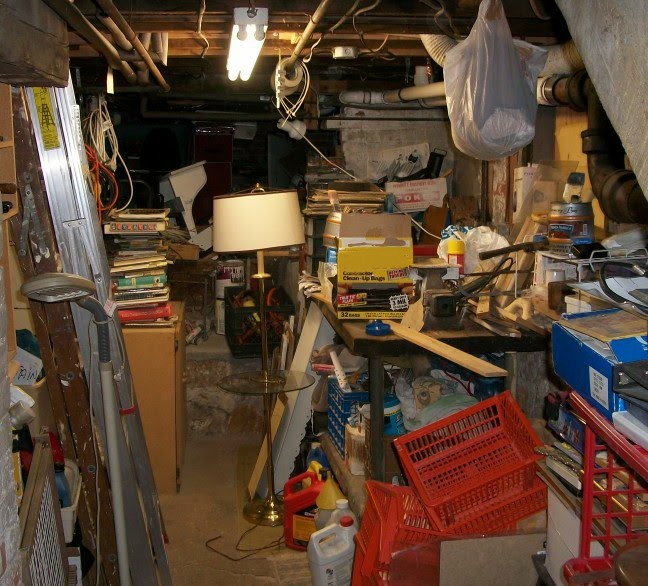In a previous post, I discussed some of the ways I reached out to sort out my feelings after my diagnosis with stage 4 lung cancer. That hasn’t been the only thing I’ve needed to deal with - there has also been all the stuff from a lifetime, especially since I’ve lived in the same home for 36 years. Rolling stones may gather no moss, but stones that stay put can grow quite a nice accumulation of moss and lichens.
When it comes to streamlining possessions, my husband is happy to just toss stuff in the trash, but I was brought up to avoid waste and have a hard time throwing out anything that might still be useful or that can be recycled. All The Stuff started to feel oppressive after my diagnosis. I was acutely aware that if I don’t deal with possessions I don’t need, someone else is going to have to do it for me some day. Plus stuff I don’t need or use still requires energy from me, as I clean the house and look for things I do want to use in cluttered drawers and shelves. Two things in particular bothered me: too many clothes and worn out textiles in our closets, and too many books on our bookshelves. Those items have been pruned down, and I have put together some principles of weeding out that work for me.
First principle: seize opportunity. I was spurred to take on my first project, getting rid of the excess textiles, when I read in the paper that there was a big cooperative textile recycling project in our area. We took 14 large trash bags of textiles to one of the participating second-hand stores, completely filling our car’s trunk and back seat. Old tattered quilts that I would never mend, wool skirts damaged by moths, and worn out underwear went to the textile recycler, while all the button down dress shirts that no longer fit my husband and the office clothes I would never wear again were happily accepted by a second-hand store. I am also much more likely to spontaneously pass on a possession I don’t really need to friends and family.
Second principle: keep what you or someone else loves. I used this one when weeding out our books. My starting point was learning what our daughter wanted in her library some day. I took pictures of each of our bookshelves and emailed them to her, and she sent me back lists of the books she wanted us to keep. They became the core of our collection. My husband and I added the books we still wanted, then pulled all of the remaining books off of the shelves.
Third principle: let it go. I was brought up to think of books as precious objects, and had to get over that when I dealt with the heaps of surplus books. Paperbacks in bad condition went straight to recycling. We also decided not to try to resell stuff. Some people do well at selling books and clothing on auction sites, but for me, life is too short to take on the work involved. We didn’t need the money, so we gave it away, for reuse when possible and to recycling otherwise.
Fourth principle: if you can, help someone or an organization you value. All the surplus books in good condition were evaluated by looking at the used book listings on the big one-stop online shopping website that specializes in books (you know the one I mean). Some of our books, like one on well drilling, turned out to be surprisingly valuable. We gave these to our local library, along with books we had really enjoyed or that seemed of interest. They go through all book donations and sell the ones they do not put on their shelves, and those oddball but valuable books could be easily resold to help boost our library’s income. Everything else was bagged up and carted away by our trash man.
We are not done. I still don’t know what to do with our daughter’s china tea sets, all missing pieces due to the casualties of play. There are two boxes full of her childhood art projects, too. I’ve got a drawer full of old calendars and odd items like vinyl iPod cases. And I don’t feel responsible for sorting out stuff in my husband’s world, such as tools and odd boxes of nails. It’s still a lighter feeling living in a little less clutter. Whether or not I had lung cancer, this is an improvement in my quality of life.
Have you sorted through your possessions since you were diagnosed?
Photo credit: Tom W. Sulcer, Public domain image made available under the Creative Commons CC0 1.0 Universal Public Domain Dedication

